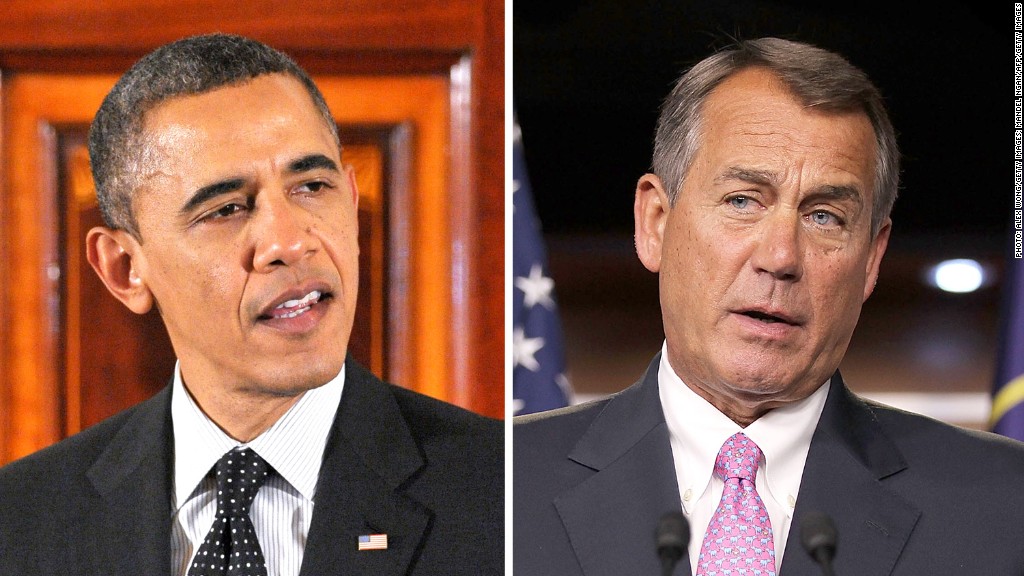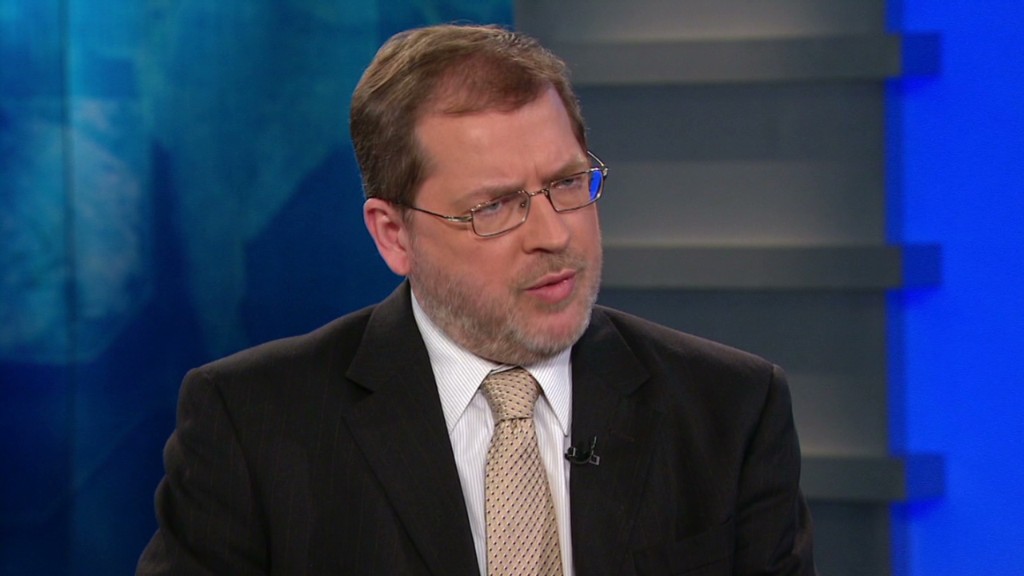
The fiscal cliff may not be resolved yet. But after the latest round of offers and counteroffers, it's fair to assume that tax rates will be going up on the rich in some fashion.
Just how high those rates will be and how "rich" will be defined remain open questions.
But this much is certain: If a real compromise is reached between Boehner and President Obama, the tax increase on high-income households will likely be less than what Obama originally proposed.
House Speaker John Boehner on Sunday proposed increasing tax rates on those making at least $1 million. Obama on Monday offered to raise rates on income of $400,000 and above. But beyond that, many key details remain unclear.
Related: Obama's counter offer: Raise taxes on $400,000
Obama's starting position has long been to let all the Bush tax cuts expire on income over $200,000 ($250,000 for married couples). That would include a hike in the top income tax rates to 36% and 39.6%, up from 33% and 35% currently. His proposal would also reinstate limits preventing high-income households from taking certain deductions and exemptions in full. And it would raise their investment tax rates.
Under Obama's proposal, 21% of those making between $200,000 and $500,000 would pay more in taxes, with an average increase of $5,919, according to estimates from the Tax Policy Center.

By contrast, close to 95% of those making between $500,000 and $1 million would pay more, with an average tax increase of $16,838.
And 99% of those making $1 million or more would see their tax burden rise by an average of $158,027.
"That's the starting point from which things could go down," said Roberton Williams, a senior fellow at the Tax Policy Center.
Indeed, there are a number of ways an Obama-Boehner compromise could lessen those tax increases.
Related: Fiscal cliff indecision leaves paychecks up in the air
For instance, they could decide to raise the top two rates to something less than 36% and 39.6%. They could let the Bush tax cuts expire on income higher than $250,000 but lower than $1 million. Or they could amend other elements of the Bush tax cuts -- such as taxing dividends at 20% instead of subjecting them to ordinary income tax rates as Obama has proposed.
But doing so wouldn't generate as much revenue as the $1 trillion they have been considering in their latest talks.
In that case, they may need to seek revenue from high-income households in other ways -- perhaps by more directly curbing the value of the deductions they take.
